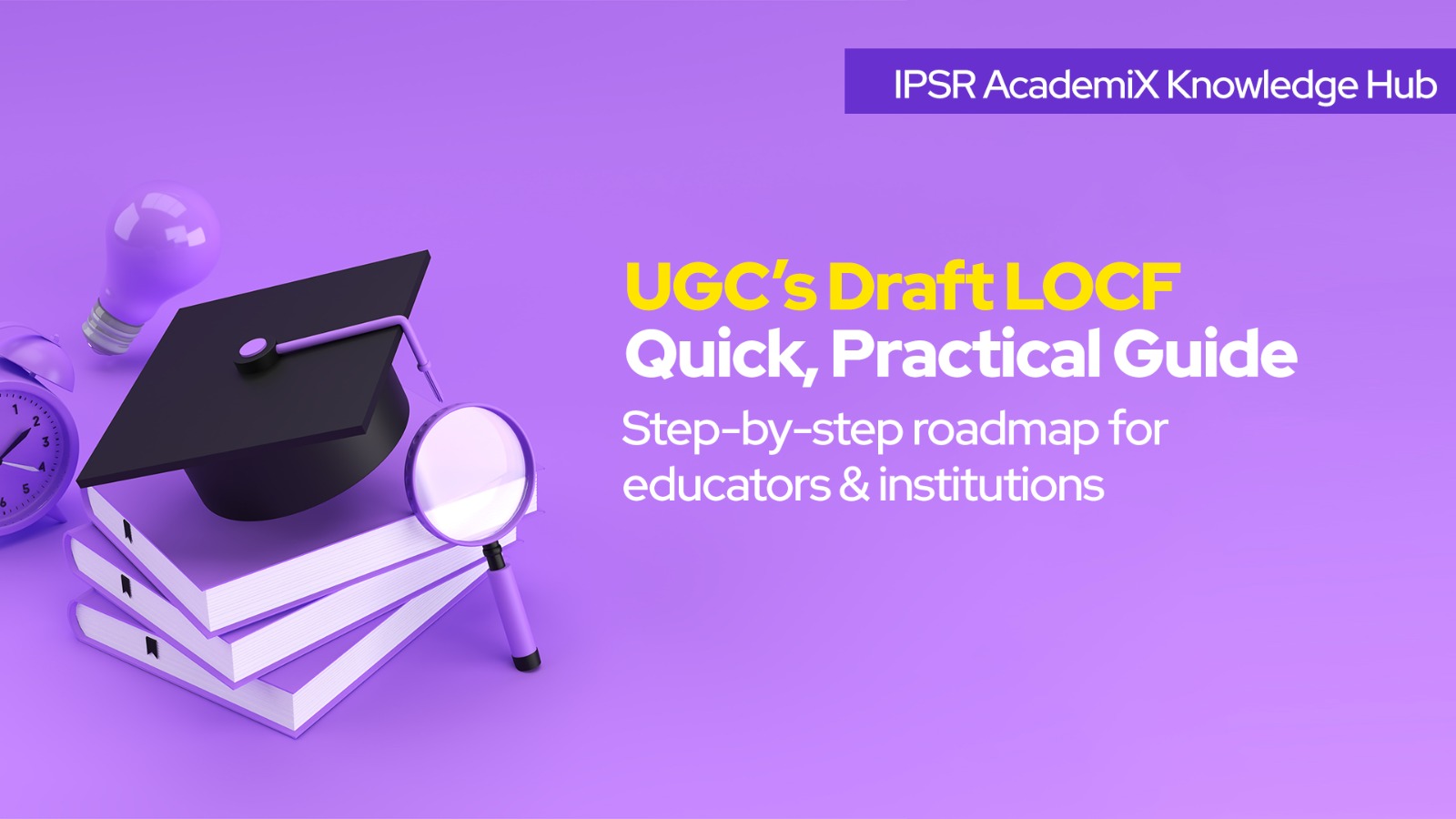
UGC’s Draft LOCF: Quick, Practical Guide for What Educators & Institutions Should Do Next
Aug-26-2025,
Articles
The University Grants Commission (UGC) has released draft Learning Outcomes-based Curriculum Frameworks (LOCFs) for nine disciplines: Anthropology, Chemistry, Commerce, Economics, Geography, Home Science, Mathematics, Physical Education, and Political Science and invited feedback from stakeholders. The stated aim: provide model curricula that promote flexibility, innovation, and outcome alignment with NEP 2020.
Below are the key takeaways and a step-by-step playbook to help curriculum designers, Boards of Studies, and IQAC teams move fast and move right.
The Big Picture: What the draft LOCF is (and isn’t)
- Model, not copy-paste. UGC positions these as guiding documents to spur flexible, innovative programme design aligned to NEP 2020: not one-size-fits-all syllabi.
- Nine disciplines in scope for this round (see above). UGC has explicitly called for feedback from HEIs and faculty before finalization.
- Deadline to engage. UGC’s public posts and notices indicate an open feedback window up to ~20 September 2025 (share inputs department-wise and via IQAC).
Action for IQAC/BoS: Set up a 2-week internal sprint: map your current curriculum to draft LOCF, consolidate gaps, and submit an institution-level response.
Course Architecture: DSCs, DSEs, and GEs matter
The drafts reiterate the LOCF structure many institutions already use: Discipline Specific Core (DSC), Discipline Specific Electives (DSE), and Generic Electives (GE). Designing with these three buckets keeps outcomes, credits, and assessment clean and auditable for NAAC/NBA.
Design tip:
- DSCs carry your non-negotiable disciplinary spine.
- DSEs showcase advanced depth or emerging sub-fields.
- GEs build breadth, interdisciplinarity, and campus-wide literacy (data, environment, IKS, entrepreneurship, etc.).
Indian Knowledge Systems (IKS): Respect the roots, keep the rigour
A distinctive theme in the drafts is explicit integration of Indian Knowledge Systems (IKS). Example: the Mathematics draft highlights traditional ideas like Kala Ganpana (timekeeping) and Bharatiya Bijganit (algebra) alongside modern pedagogy bringing heritage and logic together.
How to embed IKS well (and avoid tokenism):
- Curriculum placement: Use IKS in DSCs where historically grounded theory is essential (e.g., proofs, ratios, measurement systems), and in GEs for campus-wide cultural literacy.
- Assessment alignment: Evaluate with applications and primary-source analysis, not only recall.
- Scholarly apparatus: Cite reputable sources and critical commentary, ensuring academic rigor.
Outcomes First: Make POs/COs unambiguous and assessable
UGC’s LOCF philosophy centers on clear, measurable outcomes. To get this right:
- Write POs and COs with Bloom’s verbs (Apply, Analyze, Design) and performance criteria (accuracy, complexity, autonomy).
- Map CO→PO with explicit rubrics; use a 3-level attainment scale (1/2/3) with targets set by department boards.
- Close the loop: After each cycle, use attainment data to tweak COs, pedagogy, and assessments.
Pro move: Build a one-page CO-PO matrix per course and park it in your Course Handout (auditors love the clarity).
Assessments: From “what students know” to “what students can do”
- Constructive alignment: Every assessment task (projects, labs, studios, fieldwork, OSCEs in PE/Health, policy briefs in Pol. Sci., data labs in Economics, ethnographic mini-studies in Anthropology) must point back to a specific CO.
- Rubrics > marksheets: Publish rubrics in the syllabus. Include thresholds (Below/Meets/Exceeds) to compute attainment cleanly.
- Capstones & internships: Use DSEs/GE or SLC/SEC slots to host capstone research, community immersion, or industry projects consistent with LOCF flexibility.
Discipline-wise cues (use these as you localise)
- Anthropology: Methods-heavy design—fieldwork ethics, qualitative/quantitative techniques, and India-specific ethnographies.
- Chemistry: Safety-first labs, instrument literacy, green chemistry, data integrity.
- Commerce: Analytics for finance/marketing, governance & ethics, MSME/Startup case lets.
- Economics: Data analysis pipelines (R/Python), econometrics for policy, public finance labs.
- Geography: GIS/remote sensing studios, environmental modelling, disaster risk labs.
- Home Science: Nutrition labs, textiles/apparel design, community extension projects.
- Mathematics: Proofs + modelling, IKS strands (historical methods) with modern applications.
- Physical Education: Skill labs, sports science basics, injury prevention and analytics; align with LOCF-type structures already in use nationally.
- Political Science: Policy analysis studios, constitutional literacy, comparative politics with India-centric cases.
(These are design prompts; localise with your Board of Studies.)
Quality Signals the Drafts Emphasise (so should you)
- Flexibility & innovation in programme design—multiple pathways, interdisciplinary choices.
- Cultural rootedness via IKS with academic rigour.
- Transparency in mapping outcomes to courses and assessments (clean matrices).
- Stakeholder feedback before rollout—students, alumni, industry, and faculty.
A 10-Step Curriculum Redesign Sprint (2 weeks, campus-ready)
- Constitute a task force (IQAC lead + BoS + external expert).
- Gap-map your current syllabi against draft LOCF headings per discipline.
- Freeze POs (8–10, campus-wide alignment).
- Rewrite COs for each course with Bloom’s verbs + criteria; tag IKS elements where natural.
- Build CO-PO matrices and rubrics; set attainment targets (≥60% Meets).
- Repack courses into DSC/DSE/GE with rationales.
- Design assessments (projects, labs, OSCEs, policy memos, studios) aligned to COs.
- Insert experiential credits (internships, community projects, field schools).
- Publish model handouts (COs, rubrics, readings, weekly plan, academic integrity note).
- Submit structured feedback to UGC by the window; retain the same dossier for your Academic Council.
Governance & Documentation (your NAAC/NBA-friendly toolkit)
- Three one-pagers/course: (i) COs + weekly plan, (ii) CO-PO matrix, (iii) assessment map + rubric exemplars.
- Attainment dashboard: Dept-level sheet computing CO and PO attainment each semester; archive “actions taken.”
- IKS evidence file: Reading lists, primary texts, assignments, and assessment exemplars where IKS is used.
- Stakeholder minutes: Proof of alumni/industry input before adoption (feeds SSR/DVV later).
Watch-outs (so you don’t get tripped up)
- Avoid token IKS. Tie traditional concepts to explicit COs and assessments.
- Don’t over-standardise. Model ≠ mandate—preserve your regional strengths and institutional mission.
- Keep evidence. Whatever you align or revise, document why and how and keep pre/post versions.
Timeline for Action
UGC has asked stakeholders to review and submit feedback on the draft LOCFs (window indicated up to 20 September 2025 in public notices). Set an internal deadline one week earlier so your Academic Council can vet and approve the submission.
Final Word
This LOCF round is both heritage-aware and future-ready – a chance to modernize pedagogy, make outcomes crystal-clear, and showcase India’s knowledge traditions with academic rigor. Pair sound OBE mechanics with meaningful IKS integration, and your curriculum will feel rooted, relevant, and review-proof. Let’s build it right – for learners, for India, for the long game.
Dr. Mendus Jacob, is the CEO of ipsr solutions limited and Professor & Director of the MCA Programme at Marian College, Kuttikkanam (Autonomous), with over 35 years of experience as an academician and entrepreneur. He is the former Director of School of Applicable Mathematics, M. G. University, Kerala. A Ph.D. in Operations Research with numerous publications, he has served on academic bodies of universities and autonomous institutions, produced Ph.D.s, and been a sought-after resource person for global conferences and faculty development programmes. An expert in NEP, Outcome Based Education, and Accreditation, he has mentored prestigious universities and trained over 40,000 faculty members nationwide on OBE implementation.

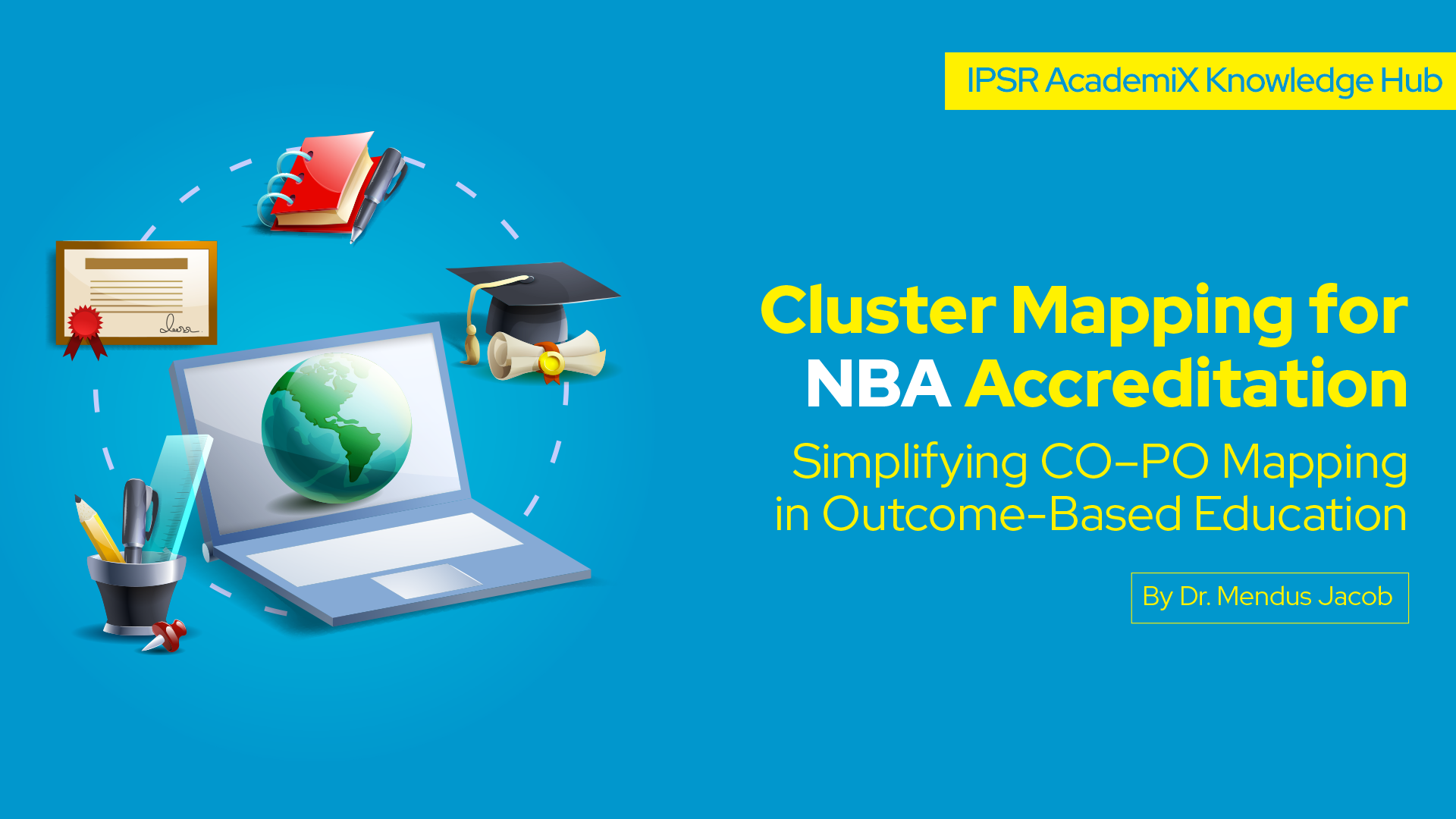
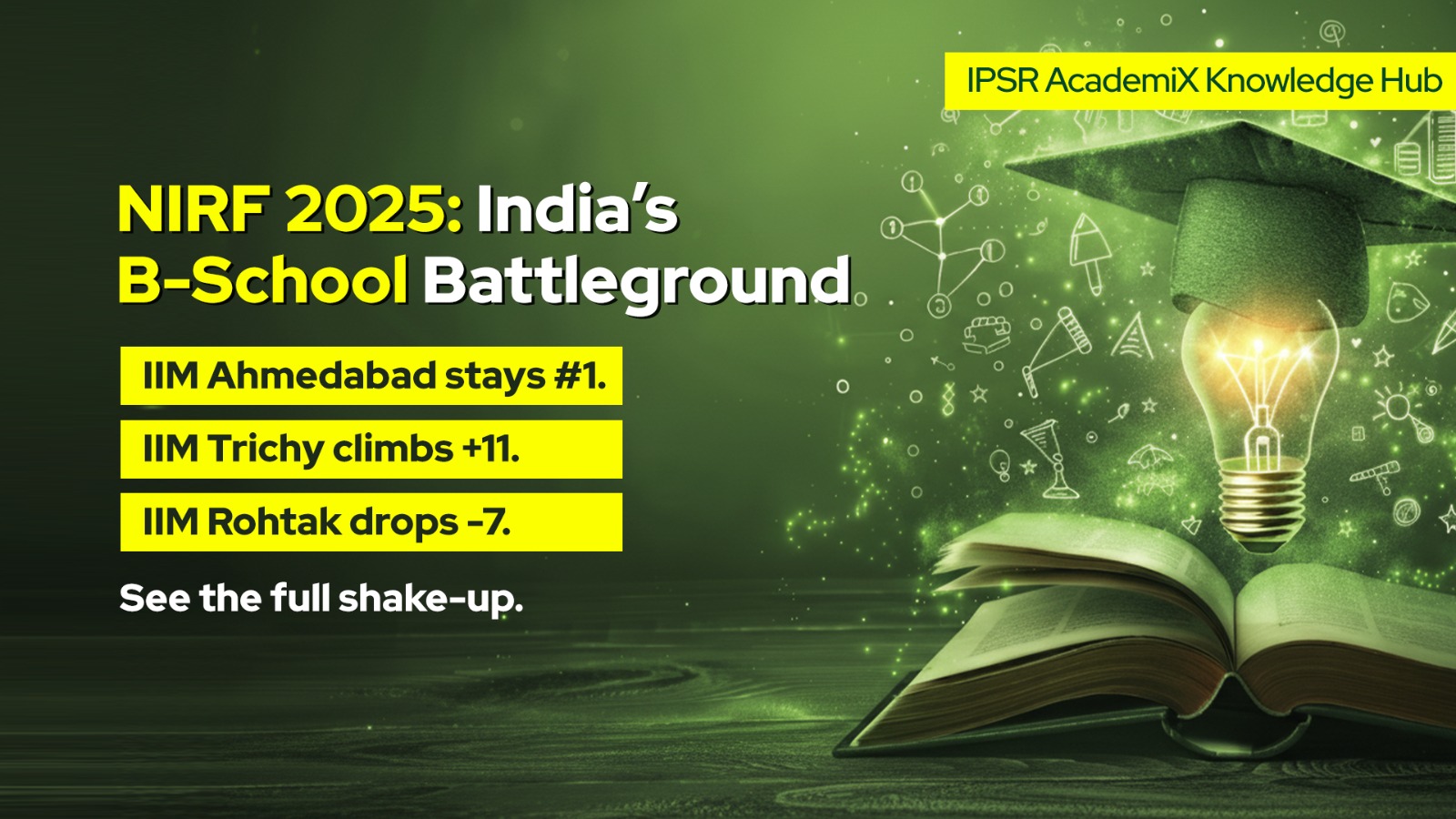
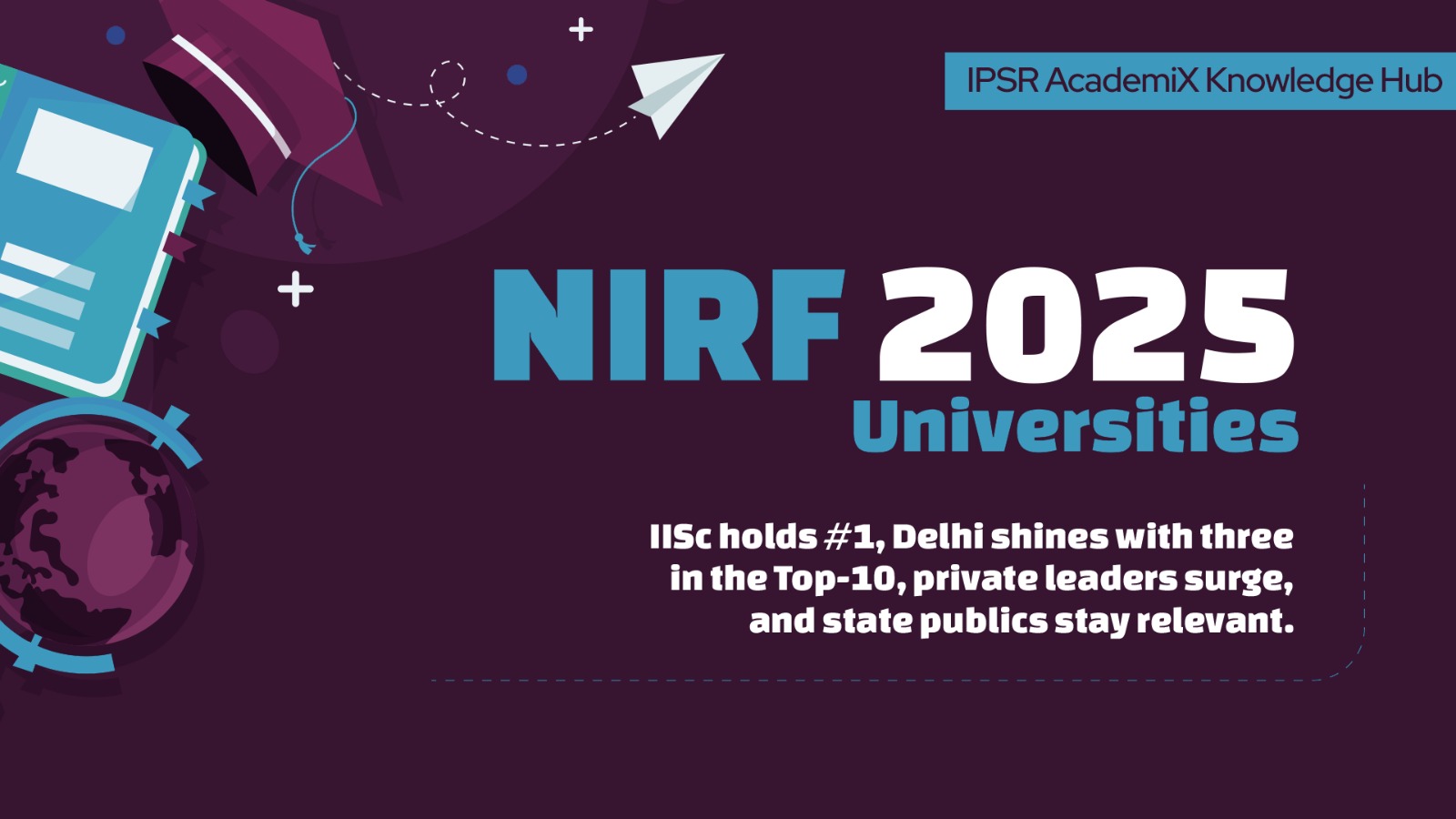
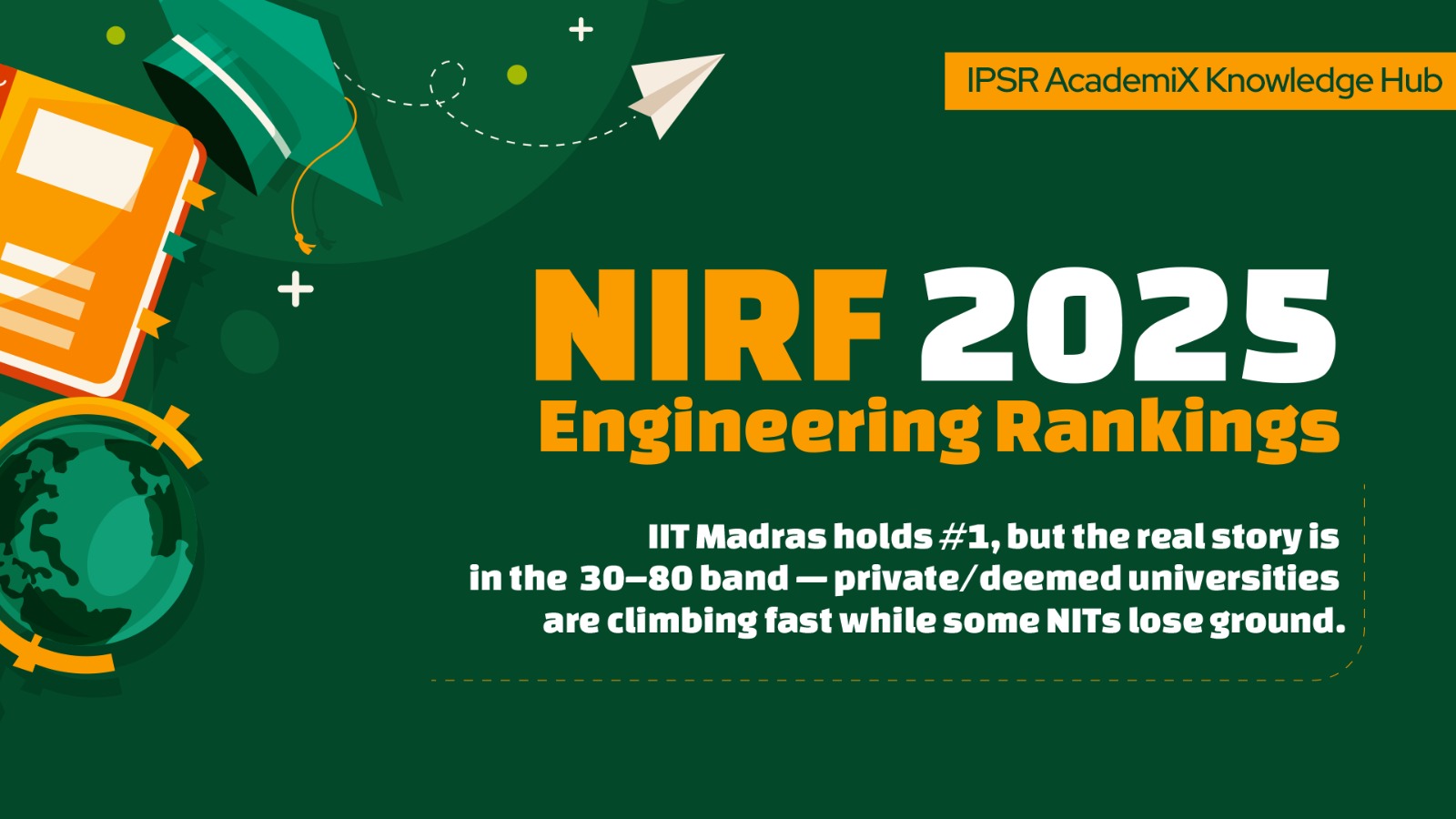
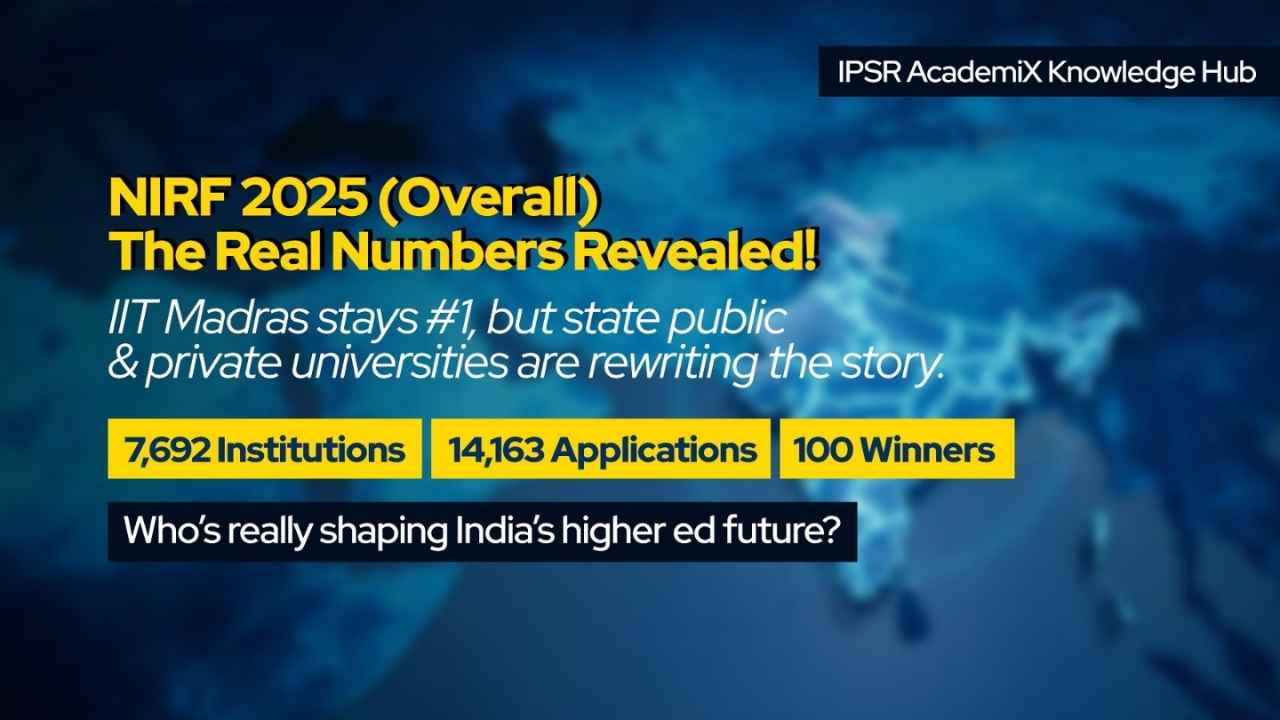
Leave A Comment